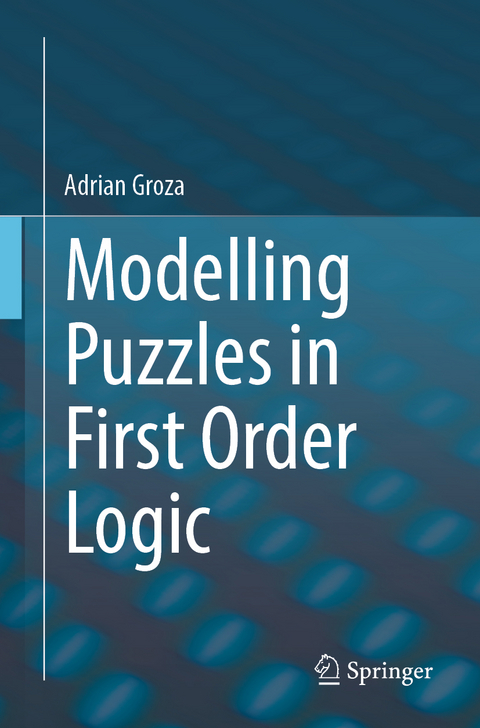
Modelling Puzzles in First Order Logic
Springer International Publishing (Verlag)
978-3-030-62546-7 (ISBN)
Keeping students involved and actively learning is challenging. Instructors in computer science are aware of the cognitive value of modelling puzzles and often use logical puzzles as an efficient pedagogical instrument to engage students and develop problem-solving skills.
This unique book is a comprehensive resource that offers teachers and students fun activities to teach and learn logic. It provides new, complete, and running formalisation in Propositional and First Order Logic for over 130 logical puzzles, including Sudoku-like puzzles, zebra-like puzzles, island of truth, lady and tigers, grid puzzles, strange numbers, or self-reference puzzles.
Solving puzzles with theorem provers can be an effective cognitive incentive to motivate students to learn logic. They will find a ready-to-use format which illustrates how to model each puzzle, provides running implementations, and explains each solution.This concise and easy-to-follow textbook is a much-needed support tool for students willing to explore beyond the introductory level of learning logic and lecturers looking for examples to heighten student engagement in their computer science courses.
Dr. Adrian Groza is a Professor at the Department of Computer Science at Technical University of Cluj-Napoca. He has been teaching many different topics on Artificial Intelligence (knowledge representation and reasoning, planning, machine learning, natural language processing) to undergraduate students for more than ten years.
Preface.- Getting Started with Prover9 and Mace4.- Micro Arithmetic Puzzles.- Strange Numbers.- Practical Puzzles.- Lady and Tigers.- Einstein Puzzles.- Island of Truth.- Love and Marriage.- Grid Puzzles.- Japanese Puzzles.- Russian Puzzles.- Polyomino Puzzles.- Self-reference and Other Puzzles.- Epigraph in Natural Language
"The purpose of this book is to introduce first-order logic (FOL) to newcomers. ... The book is a treasure trove of puzzles like this. ... All of these are motivated in an approachable, fun way. ... the book is a hands-on guide to Prover9 and Mace4 ... . It is quite valuable to have so many puzzles in a single book." (Jesse Adam Alama, Mathematical Reviews, October, 2022)
“The purpose of this book is to introduce first-order logic (FOL) to newcomers. … The book is a treasure trove of puzzles like this. … All of these are motivated in an approachable, fun way. … the book is a hands-on guide to Prover9 and Mace4 … . It is quite valuable to have so many puzzles in a single book.” (Jesse Adam Alama, Mathematical Reviews, October, 2022)
| Erscheinungsdatum | 28.10.2021 |
|---|---|
| Zusatzinfo | XV, 338 p. 208 illus., 93 illus. in color. |
| Verlagsort | Cham |
| Sprache | englisch |
| Maße | 155 x 235 mm |
| Gewicht | 545 g |
| Themenwelt | Informatik ► Theorie / Studium ► Künstliche Intelligenz / Robotik |
| Mathematik / Informatik ► Mathematik ► Allgemeines / Lexika | |
| Schlagworte | Artificial Intelligence • automated reasoning • first order logic • Puzzle-based Learning • theorem proving |
| ISBN-10 | 3-030-62546-X / 303062546X |
| ISBN-13 | 978-3-030-62546-7 / 9783030625467 |
| Zustand | Neuware |
| Haben Sie eine Frage zum Produkt? |
aus dem Bereich


